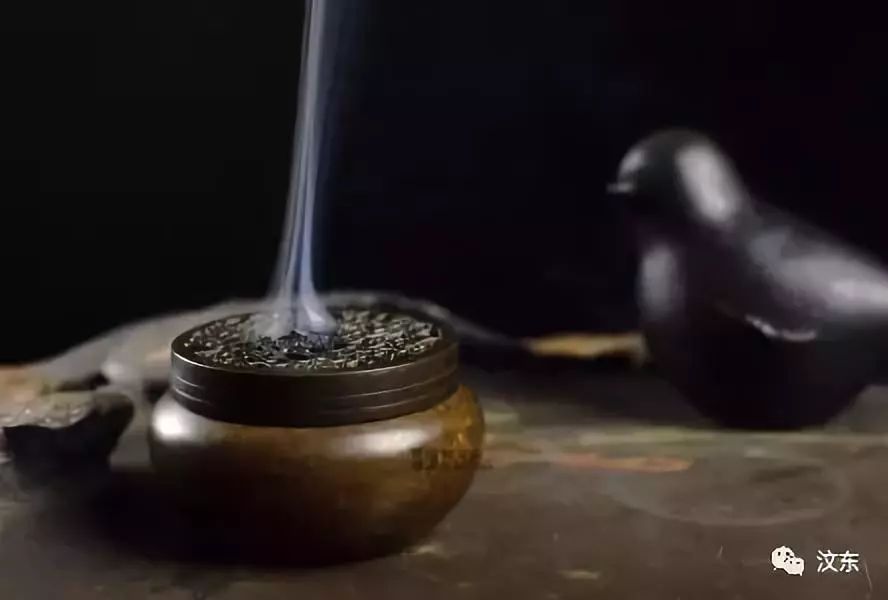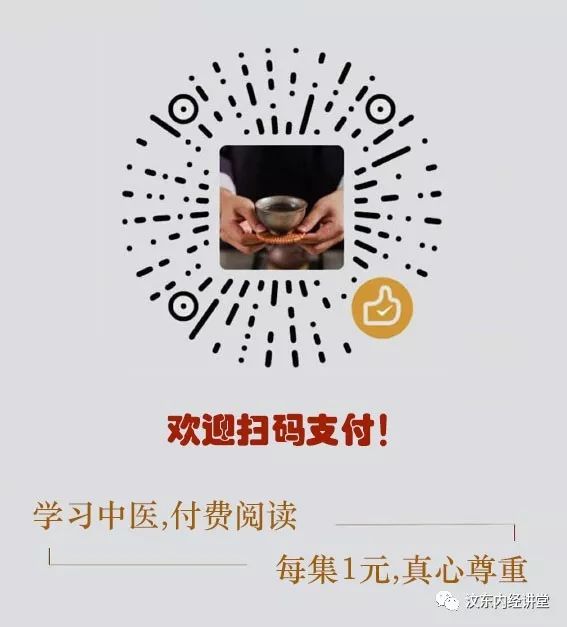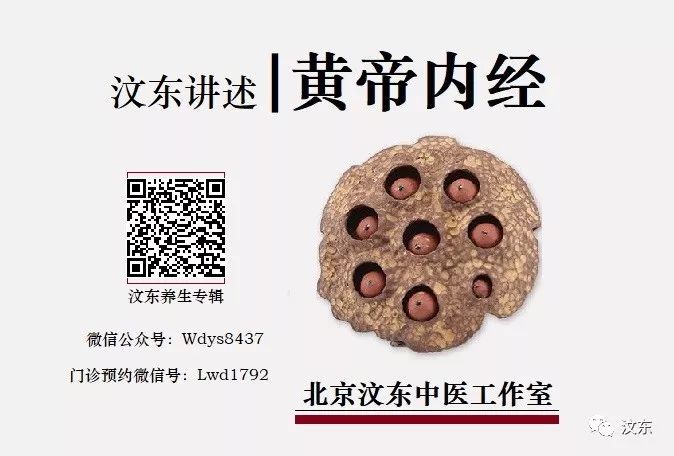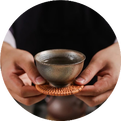
Hello everyone:
Today, we will discuss what Qi deficiency is. Friends who have experience with Traditional Chinese Medicine (TCM) diagnosis often encounter the term “Qi deficiency.” Patients typically ask, “Which Qi is deficient? Is it Kidney Qi (Shen Qi), Spleen Qi (Pi Qi), Heart Qi (Xin Qi), or Lung Qi (Fei Qi)? Or is it an overall Qi deficiency?” Here, it is important to note that when TCM refers to Qi deficiency, it generally indicates an overall deficiency of Qi without a specific organ being particularly deficient.
What are the manifestations of overall Qi deficiency in a person?
The manifestations include weakness, pale complexion, shortness of breath, fatigue in the limbs, dizziness, sweating upon exertion, and a weak voice. This Qi deficiency refers to a general weakening of bodily functions, and the underlying cause is the deficiency of the body’s original Qi (Yuan Qi).
So, what does Yuan Qi refer to?
Yuan Qi is the innate Qi derived from the essence of one’s parents, combined with the postnatal essence from food and water, as well as the natural clear Qi. In TCM, this is referred to as Yuan Qi, while modern medicine describes it as the body’s metabolic capacity. In simple terms, the innate Qi is the original energy preserved within a fertilized egg, derived from the genetic material of the parents, which TCM calls innate Qi. When the innate Qi of the body combines with the postnatal essence absorbed from food and water, along with the oxygen obtained through breathing, these three types of Qi together form the body’s Yuan Qi.
Where is Yuan Qi stored in the body?
To understand where Yuan Qi is stored, we first need to comprehend the meaning of the character “Yuan.” There are three interpretations of Yuan: the first meaning is “original,” derived from the Shuowen Jiezi; the second meaning is “ubiquitous,” as stated in the Daoist classic Zihua Zi, Da Dao: “Yuan is everywhere.” The third meaning is “the root of all things,” also from a Daoist classic Chunqiu Fanlu, Chong Zheng: “Yuan is the root of all things.”
In the past, many physicians believed that Yuan Qi is stored in the Guanyuan point (Guanyuan Xue). The term “Guanyuan” refers to a checkpoint or barrier, indicating that Yuan Qi passes through this point. Some also believe that Yuan Qi is stored at the Qihai point (Qihai Xue). Both interpretations stem from Daoist teachings, which emphasize the gathering of the three flowers at the crown and the five Qi converging at Yuan. The three flowers refer to essence, Qi, and spirit, while the five Qi refer to the Qi of the five organs. The concept of the three flowers gathering at the crown means that essence, Qi, and spirit converge at the head, while the five Qi converging at Yuan indicates that the Qi of the five organs gathers at the Qihai and Guanyuan points, located in the lower abdomen. Daoists believe that when a person reaches this level of cultivation, they can achieve clarity of mind, develop wisdom, and even transcend life and death, ultimately attaining immortality.
Why is the lower abdomen referred to as Yuan?
This is because ancient people believed that during the early stages of gestation, we reside in the mother’s womb, which corresponds to the lower abdomen. The character “Yuan” implies a starting point. In ancient China, the year of the birth of a new thing was referred to as the “Yuan year.” The fertilized egg implants in the mother’s womb at the lower abdomen, thus making it the starting point of life, and TCM refers to this life force as Yuan Qi.
What is Qi?
Ancient Chinese philosophy categorizes things into two types: one is material, which is tangible and referred to as Yin; the other is functional, which is intangible and drives the movement of matter, referred to as Yang. In our body, blood corresponds to Yin characteristics, as it is material, hence called Yin blood. Qi, which exists alongside blood and promotes blood circulation, is considered Yang, thus referred to as Yang Qi.
The great Ming dynasty physician Zhang Jingyue stated in his work Jingyue Quanshu, Chuan Zhong Lu, Mingmen Yu Yi: “The Mingmen is the root of Yuan Qi, the residence of water and fire. The Yin Qi of the five organs cannot be nourished without it, and the Yang Qi of the five organs cannot be activated without it.”
This means that the root of a person’s Yuan Qi is located in the kidneys, with the Mingmen representing the Yang of the kidneys. The human body has two kidneys, which TCM considers to be one Yin and one Yang, thus referring to the kidneys as the residence of water and fire. The Yang is called Mingmen, while the Yin is called Kidney Yin. The Yin Qi of the five organs is rooted in Kidney Yin, while the Yang Qi of the five organs is rooted in Kidney Yang.
What characteristics does Yuan Qi possess?
Based on the analysis above, we can summarize that Yuan Qi has the following three characteristics: 1. The starting point of Yuan Qi is in the lower abdomen, hence it is called Yuan Qi. 2. Yuan Qi is rooted in the Mingmen, thus related to the Yang Qi in the kidneys. 3. Yuan Qi promotes the circulation of blood throughout the body, thus it is stored within the blood in our body.
If a person’s Yuan Qi is deficient, what can be done? Can it be replenished?
Yes, it can be replenished, but not directly. Why? Because Yuan Qi consists of both innate essence and postnatal essence, which can be transformed into innate essence. Therefore, while Yuan Qi deficiency can be replenished, it cannot be done directly; instead, it requires nourishing the postnatal essence to achieve the goal of replenishing the innate essence. Thus, the replenishment is indirect, not direct. This leads to a problem: although it can be replenished, the process is relatively slow.
Therefore, it is important to note that innate essence should not be excessively consumed. Excessive consumption can lead to insufficient life force, which, when Yuan Qi is deficient, can cause Qi deficiency in other organs, such as Spleen Qi deficiency, Kidney Qi deficiency, Heart Qi deficiency, and Lung Qi deficiency. This makes the situation much more difficult to regulate.
What are the manifestations of Qi deficiency in the five organs? Let’s discuss this in detail:
We will start with Lung Qi deficiency. Why start with Lung Qi deficiency? Because the lungs govern the Qi of the entire body, so we begin here. In TCM lectures, there is a characteristic: when discussing blood deficiency, we start with the liver, as the liver stores blood. When discussing Yin deficiency, we start with the kidneys, as the kidneys store essence. Naturally, when discussing Qi deficiency, we start with the lungs.
The Huangdi Neijing, Ling Shu Ben Shen states: “If Lung Qi is deficient, there will be nasal congestion, shortness of breath, and if severe, the person will need to tilt their head to breathe.”
This means that if a person has Lung Qi deficiency, they will experience nasal congestion, shortness of breath, and a feeling of fullness in the chest, requiring them to tilt their head to breathe, indicating a severe case of Lung Qi deficiency.
Generally, Lung Qi deficiency refers to weakened respiratory and metabolic functions. The main causes of Lung Qi deficiency include exposure to wind-cold or wind-heat, leading to prolonged coughing that injures Qi, or excessive emotional sadness, along with improper work-rest balance. The main manifestations of Lung Qi deficiency include weak cough, shortness of breath, phlegm, thin and clear phlegm, low voice, fatigue, pale complexion, and sensitivity to wind with spontaneous sweating. These are the manifestations of Lung Qi deficiency.
Many friends may wonder what to eat for Lung Qi deficiency. If I tell you what medicine to take, it could be harmful. Why? Because most friends lack the ability to differentiate symptoms; Lung Qi deficiency is often accompanied by other organ issues, and it is rarely an isolated problem. We discuss it separately for better understanding. Therefore, when ill, it is best to consult a trusted physician for diagnosis and treatment.
However, it would be remiss not to mention a formula here. A representative formula for Lung Qi deficiency symptoms is Yupingfeng San (Jade Windscreen Powder), which consists of three herbs: Huang Qi (Astragalus), Bai Zhu (White Atractylodes), and Fang Feng (Siler). This formula has the effects of tonifying Qi, stabilizing the exterior, and stopping sweating. It is commonly used to treat symptoms of spontaneous sweating due to Lung Qi deficiency, with pale complexion and a thin white tongue coating. The latter part refers to the body’s surface Qi deficiency, meaning that a person with surface Qi deficiency is prone to excessive sweating, easily susceptible to wind-cold, and prone to colds.
Yupingfeng San is available at pharmacies, often sold as Yupingfeng granules, which are over-the-counter medications that anyone can purchase. However, it is important to note that over-the-counter does not mean it is suitable for everyone. If it is not suitable, there will definitely be side effects. The discussion of medication here is to provide insight into the thought process behind using herbs. Those who do not possess the ability to differentiate should not buy and take medications casually.
Next, let’s discuss Kidney Qi deficiency.
Kidney Qi deficiency refers to the deficiency of Kidney Qi, leading to symptoms such as lower back and leg soreness and decreased sexual function. Additionally, Kidney Qi deficiency can also cause Spleen deficiency, resulting in loss of appetite and weakened digestion and absorption. The manifestations of Kidney Qi deficiency include shortness of breath with spontaneous sweating, fatigue, pale complexion, nocturnal emissions, premature ejaculation, frequent urination with weak flow, and lower back and knee soreness, as well as reduced hearing and cold extremities.
In TCM, the kidneys are considered the foundation of innate essence, and they are closely related to other organs. For example, the Yang Qi in the kidneys is the root of Heart Yang and Spleen Yang, while the Yin Qi in the kidneys is the root of Liver Yin. Furthermore, the kidneys are also related to respiration, as they govern the intake of Qi, thus being referred to as the root of Qi.
Therefore, if a person has Kidney Qi deficiency, it can affect overall bodily functions. For instance, many friends are aware of Spleen and Kidney Yang deficiency, Heart and Kidney disharmony, and Liver Yin deficiency leading to Liver Yang rising, as well as Kidney Qi deficiency leading to the kidneys not being able to govern Qi.
Now, I will briefly explain the aforementioned symptoms:
Spleen and Kidney Yang deficiency:
Spleen and Kidney Yang deficiency refers to the weakness of Yang Qi in the kidneys, which cannot generate Spleen Yang, leading to insufficient digestive and absorptive functions. The manifestations of Spleen and Kidney Yang deficiency include loss of appetite, sticky stools, or diarrhea, lower back soreness, and lack of energy.
Heart and Kidney disharmony:
Heart and Kidney disharmony refers to the inability of Heart Yang to descend and warm the lower limbs, while Kidney Yin cannot ascend to nourish the Heart Spirit, resulting in heat above and cold below. A person with Heart and Kidney disharmony may experience rapid heartbeat, overall weakness, fatigue, palpitations, nocturnal emissions, and lower back soreness.
Liver and Kidney Yin deficiency:
Liver and Kidney Yin deficiency means that the Yin essence in the kidneys is weak and cannot nourish the Yin blood in the liver, leading to Liver Yang rising. A person with Liver and Kidney Yin deficiency may experience symptoms such as Liver fire rising, insomnia with vivid dreams, dizziness, irritability, and anger. Additionally, Liver Yang rising can easily lead to high blood pressure.
Kidneys not governing Qi:
What does it mean for the kidneys to govern Qi?
Governing means to receive and absorb. The kidneys’ function of governing Qi means that they can absorb the clear Qi inhaled by the lungs, preventing shallow breathing. Although respiration is primarily governed by the lungs, TCM believes that the normalcy of respiratory function is closely related to the kidneys. Specifically, the clear Qi inhaled by the lungs must descend to the kidneys for absorption, which maintains smooth and deep breathing, ensuring normal gas exchange inside and outside the body.
Kidneys not governing Qi means that the function of the kidneys to govern Qi is impaired, leading to shallow and rapid breathing, which is common in asthma patients. A person with impaired kidney function will only breathe into their chest, unable to breathe deeply. In contrast, normal breathing reaches the lower abdomen (Dantian), while patients with impaired kidney function only breathe into their chest, as the Yang Qi in the lungs is insufficient, resulting in rapid breathing.
Regarding Kidney Qi deficiency, we will introduce a formula: Jinkui Shenqi Wan (Kidney Qi Pill from the Golden Cabinet). This formula was originally called Jisheng Shenqi Wan and was later renamed Jinkui Shenqi Wan. The formula is derived from the eight-ingredient Kidney Qi Pill in the Jinkui Yaolue, modified accordingly. Jinkui Shenqi Wan has the effects of warming and tonifying Kidney Yang and promoting Qi and water metabolism. It is used for symptoms of Kidney deficiency with edema, lower back and knee soreness, difficulty urinating, and cold extremities.
Here, I remind everyone that the main manifestations of Kidney Yang deficiency are coldness in the lower limbs and increased urination. Additionally, this coldness has an associated condition: there should not be a rapid heartbeat. If there is a rapid heartbeat along with coldness, it may indicate Heart and Kidney disharmony or other causes. In such cases, Jinkui Shenqi Wan is not suitable. This is something everyone needs to be clear about.
Next, we will discuss Spleen Qi deficiency.
The causes of Spleen Qi deficiency are varied, including excessive consumption of cold foods, overexertion, and emotional distress, as well as chronic illness damaging Spleen Qi. Spleen Qi deficiency primarily leads to symptoms such as loss of appetite, abdominal distension, loose stools, fatigue, laziness, pale complexion, obesity, and edema.
Although there are many causes of Spleen deficiency, the fundamental issue is still Spleen and Kidney Yang deficiency. The Huangdi Neijing states: “When the righteous Qi is stored within, evil cannot invade.” This means that a person with sufficient righteous Qi will not be affected by strong evil Qi.
Therefore, while there are various causes of disease, the root cause is often righteous Qi deficiency. Here, we discuss the Spleen, and the reason for the Spleen’s many ailments is Spleen Qi deficiency, while the Yang Qi in the Spleen is rooted in the Yang Qi of the kidneys. Thus, if a person’s Kidney Yang is not deficient, the Spleen Yang will not be deficient either. Even if it is deficient, it can be easily regulated and replenished, as the root is intact. This is similar to a large tree that can self-repair as long as its roots are alive.
At this point, I will continue to introduce a formula primarily for treating sticky stools, called Shenling Baizhu San (Ginseng and Atractylodes Powder). This formula tonifies the Spleen and stomach and benefits Lung Qi. It is used to treat Spleen and stomach weakness, poor appetite, loose stools, shortness of breath, cough, and fatigue. Shenling Baizhu San is available at pharmacies, often sold as Shenling Baizhu Wan.
Next, let’s discuss Heart Qi deficiency.
Heart Qi deficiency refers to insufficient Heart Qi. Due to Heart Qi deficiency, the heart’s ability to circulate blood is weakened. The main symptoms include palpitations, shortness of breath, and chest tightness. Heart Qi deficiency is often seen in patients with certain chronic diseases.
The cause of Heart Qi deficiency is insufficient Heart Qi, leading to weak heartbeats, which results in palpitations, shortness of breath, fatigue, and easy sweating. Due to insufficient Qi and blood supply, the complexion may appear pale. Additionally, chest tightness is also common.
In treating Heart Qi deficiency, TCM commonly uses Si Junzi Tang (Four Gentlemen Decoction) or Liujunzi Tang (Six Gentlemen Decoction), along with herbs such as Gua Lou (Trichosanthes), Ban Xia (Pinellia), and Xie Bai (Garlic Chives). The basic treatment approach is to tonify Qi while adding herbs to resolve phlegm, as insufficient heart power leads to slow blood flow, which TCM refers to as stasis. Stasis can lead to phlegm accumulation, so adding phlegm-resolving herbs is beneficial for restoring heart function.
At this point, we have completed the discussion on the organs affected by Qi deficiency. Observant friends may notice that the liver has not been mentioned. It is important to note that the liver rarely experiences Qi deficiency; in most cases, the liver only experiences Yin deficiency and blood deficiency, as either condition can lead to Liver Yang rising. Therefore, when the liver is deficient, Yang Qi becomes abundant, and there is no issue of Yang Qi deficiency in the liver.
This concludes our discussion on Qi deficiency. However, this does not mean that we have covered all aspects of Qi deficiency, so please do not interpret this course as a complete explanation of Qi deficiency. There are many situations regarding Qi deficiency that have not been discussed, which we can address in future sessions. Additionally, the formulas mentioned are intended to provide insight into the thought process behind herbal use. For most individuals who lack the ability to differentiate symptoms, it is advisable to consult a physician when ill rather than self-medicate. Self-medication can potentially worsen the condition, and it is necessary to continuously remind everyone of this.
Ancient Chinese physicians had a saying: “Wealthy people often have strange diseases.” Why do wealthy people have strange diseases? Because they have money and are often misled into taking tonics, leading to various ailments. Where do these diseases come from? They are often caused by excessive supplementation. In modern times, we see a similar situation; as people become more affluent, they tend to take tonics. Let me tell you, medicine is for treating diseases, and even tonics should be prescribed by knowledgeable individuals. Taking tonics indiscriminately can lead to problems, which is not worth the risk.
Alright, today’s lesson ends here. In the next class, we will explain what Qi mechanism is. Thank you all, and see you next time.

To follow the Wendon Health platform, please scan the QR code to join.


